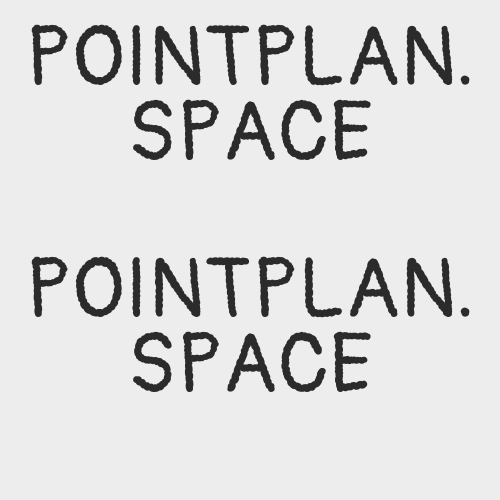Networking is one of the most powerful tools for personal and professional growth. Whether you’re an entrepreneur, a job seeker, or someone looking to advance in your career, building a strong network can open doors to new opportunities, collaborations, and career advancements. In this article, we’ll explore the importance of networking and share strategies to help you build meaningful relationships that will fuel your success.
Why Networking Matters
In today’s interconnected world, networking is essential for growth. While hard skills and qualifications are important, your network can play an even bigger role in determining your success. Research indicates that 85% of jobs are filled through networking, and people are more likely to trust and do business with someone they know personally.
Networking goes beyond simply exchanging business cards or connecting on LinkedIn. It’s about building authentic relationships, exchanging ideas, offering support, and finding ways to collaborate. A strong network not only helps you gain new opportunities but also provides a source of mentorship, advice, and inspiration.
Types of Networking
Networking can take many forms, and it’s important to understand which types of networking will benefit you the most. Here are the main types of networking:
1. Personal Networking
This type of networking involves connecting with friends, family, acquaintances, and colleagues. These are people who know you on a personal level and can provide support or guidance when needed. Personal networking is often the foundation of a broader network and can lead to introductions to new opportunities.
2. Professional Networking
Professional networking involves connecting with others in your industry or field of interest. This can be done through events, industry conferences, seminars, or even social media platforms like LinkedIn. Professional networking allows you to build connections with individuals who can offer career advice, collaborations, or job opportunities.
3. Online Networking
With the rise of digital platforms, online networking has become more important than ever. Social media platforms like LinkedIn, Twitter, and Facebook allow you to connect with professionals across the globe. Online networking can help you stay updated on industry trends, participate in discussions, and engage with potential mentors or collaborators.
Building Strong Relationships
While networking may seem intimidating, building strong relationships doesn’t have to be difficult. The key is to approach it with authenticity and genuine interest. Here are some tips for building meaningful relationships:
1. Be Genuine and Authentic
When networking, it’s essential to be authentic. People can tell when you’re being insincere or only interested in what they can offer you. Approach each interaction with a genuine desire to connect and offer value. Ask questions about their experiences, interests, and goals, and listen actively to their responses.
2. Focus on Mutual Benefit
Networking is not a one-way street. It’s about building mutually beneficial relationships. Instead of just asking for favors, think about how you can help others. Whether it’s providing advice, introducing someone to a relevant contact, or offering your expertise, making sure that both parties benefit will strengthen the connection and build trust.
3. Follow Up and Stay In Touch
One of the most important aspects of networking is follow-up. After meeting someone, send a follow-up message expressing gratitude for their time and the conversation. Staying in touch over time helps solidify the relationship. Whether through occasional check-ins, sharing interesting articles, or commenting on their social media posts, consistent communication keeps the relationship strong.
Networking Strategies for Success
Effective networking requires more than just showing up at events or sending connection requests on LinkedIn. Here are some strategies to help you network more effectively:
1. Attend Networking Events
Networking events, conferences, and seminars provide valuable opportunities to meet people in your industry. Make the most of these events by preparing beforehand. Have an elevator pitch ready to introduce yourself, and come prepared with questions to ask others. Focus on building meaningful connections rather than trying to meet as many people as possible.
2. Leverage Social Media
Social media platforms like LinkedIn, Twitter, and Instagram are powerful tools for networking. LinkedIn, in particular, is a great platform for connecting with professionals in your field, joining industry groups, and engaging in discussions. Share your expertise by writing articles, commenting on posts, and sharing valuable content. By positioning yourself as a thought leader, you can attract like-minded professionals to your network.
3. Join Industry Groups or Associations
Joining professional associations or industry-specific groups can help you meet individuals who share your interests and goals. These organizations often host events, webinars, and workshops that provide valuable networking opportunities. Being a part of such groups also establishes your credibility and positions you as a dedicated member of your field.
Overcoming Networking Challenges
Networking can be intimidating, especially for those who are introverted or shy. Here are some tips for overcoming common networking challenges:
1. Step Out of Your Comfort Zone
It’s natural to feel nervous or uncomfortable when meeting new people, but pushing yourself out of your comfort zone is essential for growth. Take small steps—start by attending smaller events or initiating casual conversations. With time, you’ll build confidence and become more comfortable networking in various settings.
2. Be Patient and Persistent
Building a strong network takes time, and it’s important to be patient. Not every interaction will lead to immediate results, but every connection has the potential to open doors in the future. Stay persistent and continue to nurture relationships over time.
3. Manage Your Time Wisely
Networking can be time-consuming, especially if you’re attending multiple events or engaging with several people online. To manage your time effectively, prioritize the relationships that align with your goals. Focus on building quality connections rather than trying to meet as many people as possible.
Conclusion
Networking is a powerful tool for success, but it’s not about quantity—it’s about quality. Building strong, meaningful relationships can provide opportunities for career advancement, collaboration, mentorship, and personal growth. By focusing on authentic connections, mutual benefits, and consistent follow-up, you can build a network that will support and propel you toward your goals.
Remember, networking is a long-term strategy. It’s not just about collecting business cards or LinkedIn connections—it’s about forming genuine relationships that will benefit both you and others for years to come.

